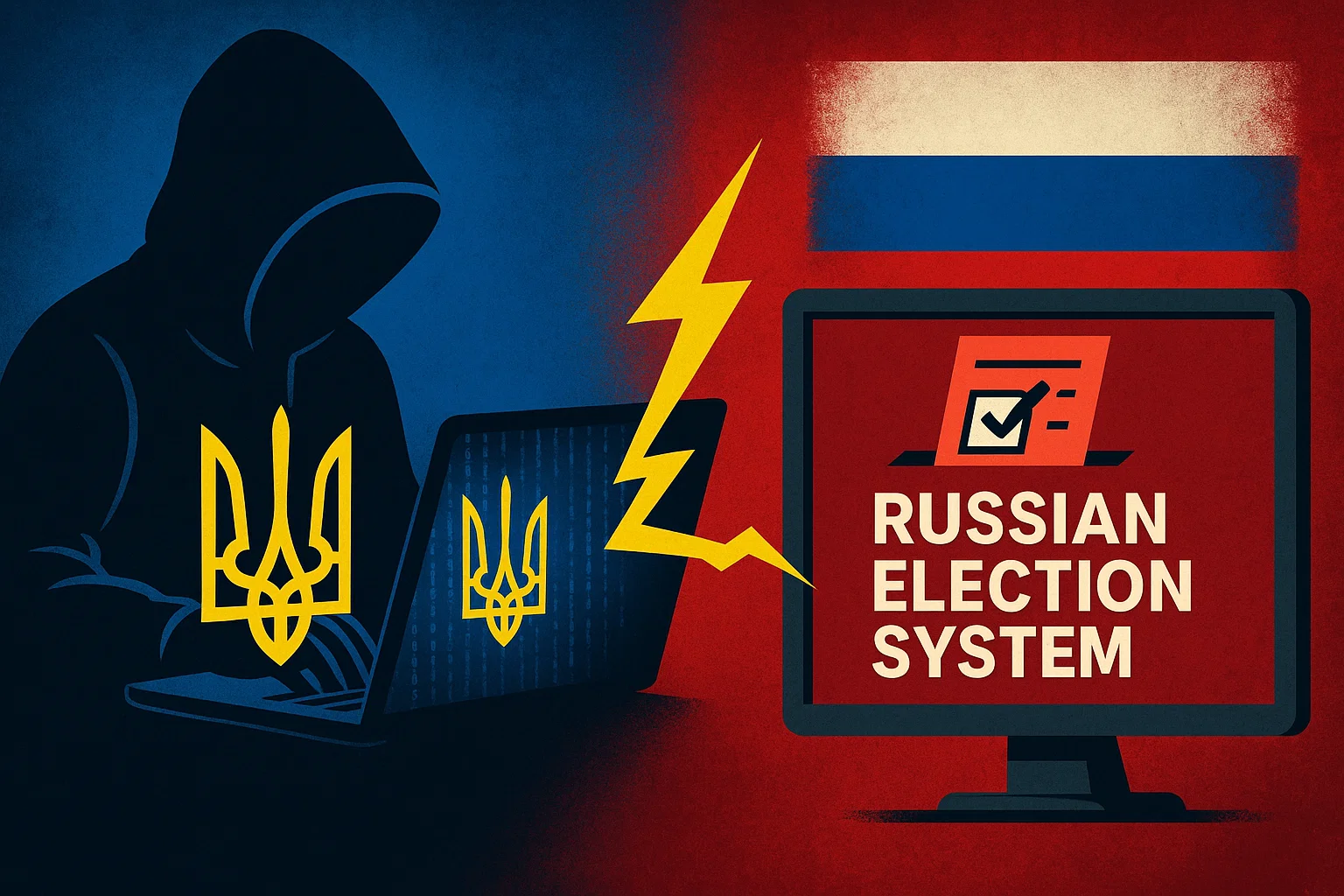On Sunday, Ukraine’s military intelligence agency, HUR said it carried out cyberattacks against Russia’s Central Election Commission and other state services in response to elections conducted in occupied regions of Ukraine.
Russia’s “unified voting day,” a nationwide event for regional and local polls, coincided with the operation. Ballots were cast not only across Russia but also in Crimea and other occupied areas of Ukraine—elections that Kyiv and its partners reject as unlawful.
According to HUR, its DDoS cyberattack hit the Central Election Commission’s servers, Russia’s electronic voting system, Gosuslugi state portal, and key routers of Rostelecom. A DDoS attack works by flooding systems with traffic until they crash or go offline.
“The goal was to disrupt online voting, particularly in occupied Ukrainian regions,” a HUR spokesperson said, adding that the attacks temporarily paralyzed digital services and left many Russians unable to vote electronically.
Moscow acknowledged sustained hacking attempts against websites connected to its elections.
Ella Pamfilova, chief of the CEC, informed local state outlets that while the website faced intermittent downtime from Friday onward, the voting process remained fully intact.
Deputy Digital Development Minister Oleg Kachanov reported temporary traffic degradation on Gosuslugi and CEC digital platforms but assured that the remote voting service remained fully functional.
Rostelecom president Mikhail Oseevsky said routers supporting the CEC website became overloaded and required rebooting, which caused peak-hour disruptions. He added the issues have been fixed and that Russia will strengthen defenses before next year’s parliamentary elections.
According to Pamfilova, more than half a million attacks targeted the CEC’s systems across the three-day election period.
Calling the occupied-territory elections unlawful, Ukraine’s foreign ministry appealed to its partners not to recognize the outcomes.

